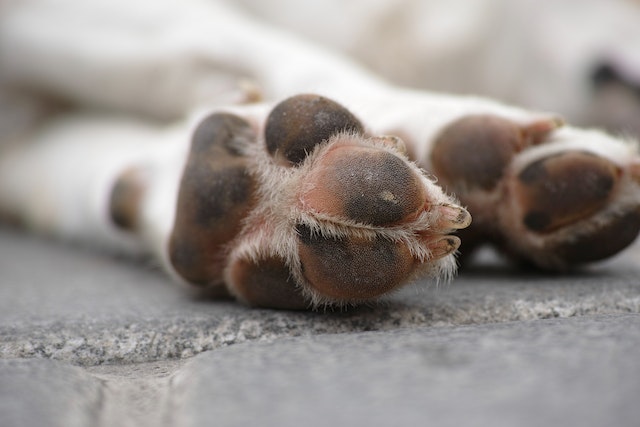11 Potential Boston Terrier Old Age Problems

Boston Terriers are one of the most popular dog breeds in the United States.
They are also known as the “American Gentleman” because of their dignified appearance and friendly demeanor.
But like any other breed, they can develop health problems over time.
If you’re caring for a Boston Terrier puppy or an adult dog that has developed some old age issues, read on!
Boston Terrier Old Age Problems
The following are some common Boston terrier old age problems you should know:
Blurred vision
Boston Terriers may have lowered vision. Boston Terriers are prone to glaucoma, corneal dystrophy, and cataracts.
Glaucoma is a condition that damages the optic nerve at its site of exit from the eye (the pupil).
The damage causes blurred vision and sometimes blindness if left untreated.
Corneal dystrophy (keratitis sicca) is similar to blepharitis but affects only one eye instead of both eyes together.
It causes dryness or irritation of your pet’s eyes leading eventually to corneal ulceration which can lead eventually to blindness for your pet!
Excessive shedding In a sleeping spot
Old Boston Terriers are known for their thick coats of fur, but they can also be prone to shedding.
This is normal behavior for this breed, and there are several things you can do to help manage the shedding.
First, make sure the dog has plenty of exercises. This will help him sweat and remove the excess hair, which will help keep the coat clean and free from infection.
Second, keep the dog groomed regularly. This will remove any loose hair and help keep the coat looking healthy.
Finally, make sure the bedding is comfortable and low-pile. This will help keep the dog from picking up hair on the bed and from getting covered in it.
Cognitive Dysfunction
Boston Terriers may have cognitive dysfunction, which is a decrease in brain function.
This can be caused by many factors including age, injury, or illness.
As Boston terriers age their brain cells become weaker and older as well which if not cared for can lead to cognitive dysfunction.
A dog that shows signs of trouble with learning or memory should be evaluated by a veterinarian immediately.
Signs include:
- Difficulty learning new things
- Difficulty remembering where to go or what to do after being taken outdoors for the first time (this includes going outside).
- Difficulty answering their names.
Dental problems
Boston terriers are prone to dental problems as they age, which can cause pain and discomfort.
Dental problems can also lead to serious health issues, including infection and abscesses.
Dogs with dental disorders often experience increased anxiety or fear, as well as other behavioral changes such as aggression toward people or other animals.
These conditions may affect your Boston Terrier’s quality of life, so you want to avoid them at all costs!
Seizures
Seizures are abnormal electrical activity of the brain.
The most common seizure in dogs is a non-convulsive seizure, which usually lasts between 3 and 15 seconds.
Seizures can cause loss of consciousness, convulsions, and/or muscle spasms.
The following symptoms may occur with a Boston Terrier during a seizure:
- Unusual behavior such as spinning around or jumping up on furniture (may also be seen after sleep).
- Barking (may be vocalized). This can happen anytime but is more frequent at night when your dog is sleeping or resting quietly in his crate.
- If you hear barking outside your bedroom door just before going to bed, for example, it could be due to an episode happening somewhere else in your house!
- You should check on him immediately if this happens so as not to miss any signs that something were wrong!
Deafness
The older Boston terrier may be at an increased risk for deafness as they age.
The Boston terrier is a breed that was originally bred to hunt small game, so they have a high energy level and need to be able to hear what is happening around them.
As they age, the Boston terrier’s ears can become floppy and prone to infection, which can lead to deafness.
If you are considering acquiring a Boston terrier, it is important to ask your breeder if they have any deaf or hearing-impaired Boston terriers in their lineup.
If you are considering adding a Boston terrier to your family, be sure to talk to a qualified veterinarian.
Boston Terriers suffer from deafness more often than other breeds because they have such small ears which don’t allow for good air circulation inside their skulls.
Muscle and Joint Issues
Older Boston Terriers can suffer from muscle and joint issues.
These issues can occur as the dog ages and can be due to a number of factors, such as genetics, health conditions, and lifestyle choices.
Muscle and joint issues in older Boston Terriers can cause a number of problems, including:
- Muscle and joint pain
- Muscle weakness
- Joint stiffness
- Arthritis
Joint pain can be a sign of a health condition, such as arthritis.
Muscle weakness can be a sign of an underlying health condition, such as chronic liver disease, or a lack of exercise.
Joint stiffness can be a sign of an underlying health condition.
Boston terriers can also suffer from Patellar Luxation or “slipped stifle” where the patella (kneecap) does not line up properly with the femur (thighbone).
This is an extremely painful condition that causes lameness in your dog when he/she walks or runs.
Hyperthyroidism
Boston Terriers can also develop hyperthyroidism.
Hyperthyroidism is a disease that affects your dog’s thyroid gland and causes an overproduction of thyroid hormones, which can lead to weight loss, excessive energy, and thirstiness.
Symptoms of hyperthyroidism in Boston Terriers include:
- Weight loss or frequent vomiting (vomiting is common in older dogs because the food they eat doesn’t stay down).
- Excessive panting or excessive drooling.
Treatment involves taking your Boston Terrier’s temperature every day to check if it has been elevated above 103 degrees F (39 Celsius) for more than 24 hours.
Or if you notice any other symptoms that suggest he might have this condition such as unexplained fever, lethargy, and restlessness; then contact his veterinarian immediately
Cancer
You should also be aware that Boston Terriers are prone to cancer.
Cancer is a very common cause of death in Boston Terriers, with the most common types being lymphoma and osteosarcoma.
Brachycephalic Syndrome
Brachycephalic Syndrome is a chronic respiratory disease that can affect your Boston Terrier.
It’s caused by the elongated, narrow nose and muzzle. The symptoms of this condition include:
- Nasal congestion or discharge with sneezing, coughing, or snorting (this may be accompanied by mild to severe inflammation)
- Chronic dry eye syndrome (damage to the cornea) leads to blurry vision and pain in dogs’ eyes.
Heart disease
Boston Terriers are prone to heart disease, a condition that affects the structure and function of your dog’s heart.
Heart disease is the most common cause of death in dogs over 6 years old and has been linked to obesity as well as having a high cholesterol level (which can be lowered with a proper diet).
Heart disease can be prevented by feeding a healthy diet and exercising regularly.
A veterinarian may recommend blood tests or listen to your dog’s heartbeat with a stethoscope if you notice any changes in their behavior or breathing pattern when they’re feeling unwell or experiencing discomfort during exercise.
How to care for older Boston terrier
Here are some common ways to care for an older Boston terrier:
- Feed your Boston terrier on a regular schedule, regardless of whether they seem hungry or not.
- Give them plenty of fresh water and a clean potty area.
- Spend more time with your older Boston terrier.
- Exercise them regularly, even if they seem to be comfortable in their dog bed.
- Monitor their weight and take them to the vet if they seem to be losing too much weight or if their body is otherwise giving them trouble.
- Provide them with fresh toys and new ones often.
- Keep their nails trimmed and clean.
- Protect them from drafts and heat in the summer and cold in the winter.
- Take care of their emotional well-being by providing them with positive reinforcement and attention.
- Reduce new activities around your older Boston terrier.
- Avoid separation anxiety in your older Boston terrier.
- Always keep your older Boston terrier hydrated.
Common causes of death in Boston terriers
Boston Terriers die from a variety of causes, but the most common are cancer, heart disease, and stroke.
Boston Terriers are also prone to other health problems, including allergies, seizures, and hip dysplasia.
Learn more about Boston terrier sick symptoms.
Conclusion
The Boston Terrier is a small, playful dog that is known for its wagging tail and friendly personality.
While these characteristics are typically associated with a young dog, the Boston Terrier can actually experience some problems as it ages.
One common issue that Boston Terriers experience as they age is arthritis.
This condition causes pain and stiffness in the joints and can make it difficult for the dog to move around and enjoy life. In some cases, arthritis can also lead to disability.
Another common problem that Boston Terriers experience as they age is liver disease.
This condition can affect the dog’s ability to digest food, which can lead to weight gain and death.






